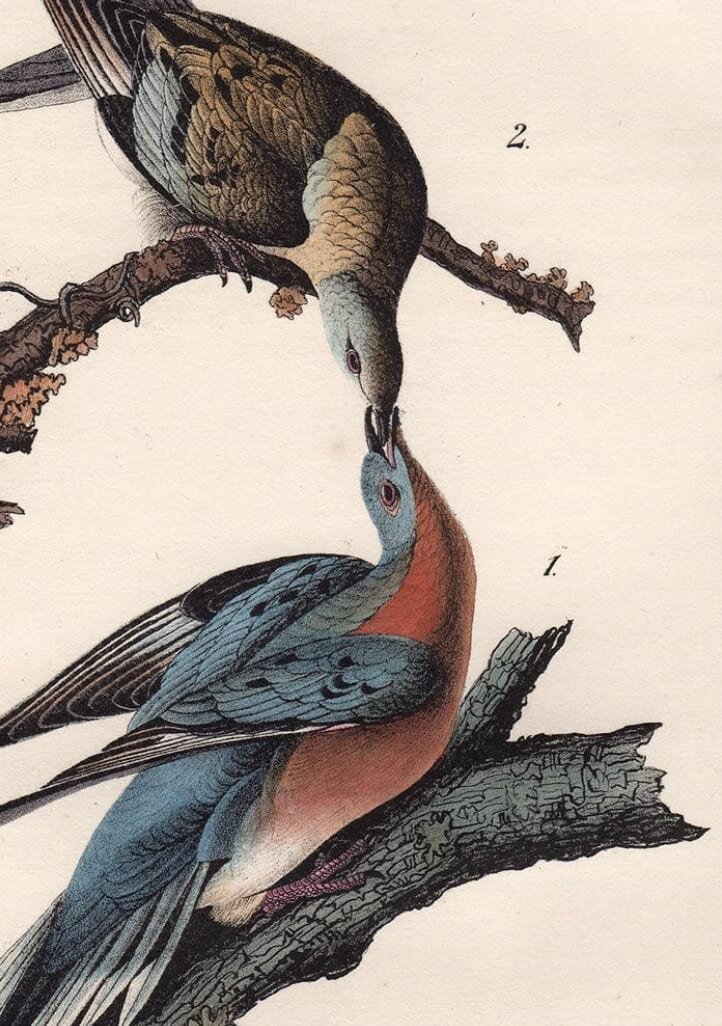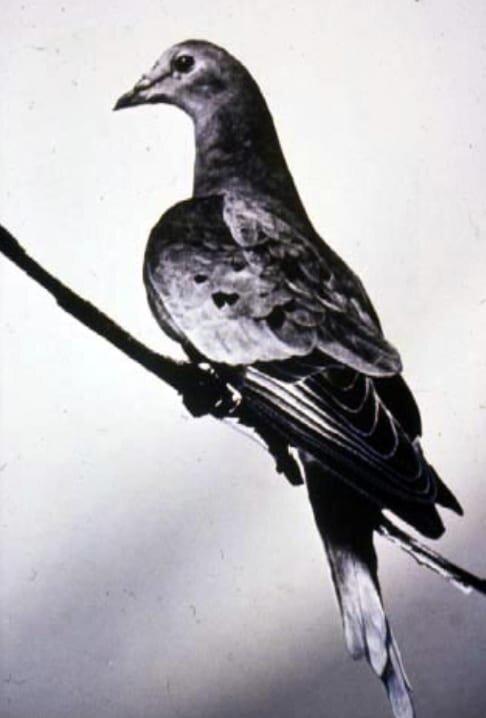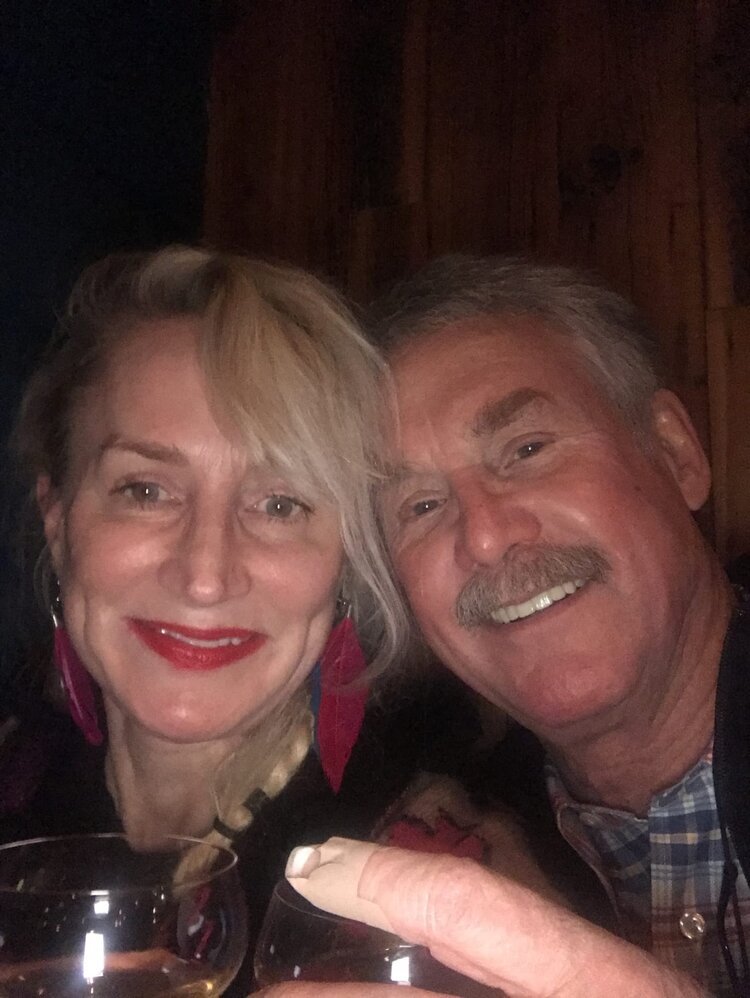View from the Gazebo
I find myself on the cusp of a new decade looking back on times that in many ways have been dark and full of terrors, to quote an oft repeated line in one of the most defining cultural touchstones of the last ten years, Game of Thrones. But even more than that, it’s been a time full of sorrows. And along the way, I have stopped using the word hope— the idea began to feel hollow to me. I’m not a complete fatalist when it comes to the state of things, it’s just that with the weight of all that is happening, hope for our planet, as we know it, has been poleaxed. What I’d hoped for since I was very young was a safe place full of wild wonder and multiplicity, but now climate change and habitat destruction, fueled by human greed, are grinding away at the fullness that our world once offered. And to hope that it isn’t, is an exercise in futility.
In the 1980s, when rainstorms pounded the grounds of the Cincinnati Zoo and sent sheets of water ripping across the park’s black pavement, I’d race for a small gazebo that served as mausoleum for Martha, the world’s very last passenger pigeon. With hair dripping and clothes sodden, I waited out the weather in this old brick building, one that articulated the finality of extinction through an array of old pictures, plaques, and various flourishes of display. Martha died in Cincinnati, Ohio, in 1914, and I grew up with her ghost. I spent hours, alone, in this beautiful building, drenched and lonely for a bird that once was so prolific, it blotted the sun from the sky with its massive flocks. During the hours spent here, amid placards and a taxidermized pigeon (not Martha, she’s at the Smithsonian), I learned what it meant for an entire species to simply vanish. I learned it from inside the crypt of a bird that no longer existed.
Now I watch what befalls other creatures as they struggle through catastrophic fires, ingest plastics, and cook in intemperate waters. I will watch my fellow humans suffer, as I do myself, through the direct impacts of climate change, or through the sorrow of watching death play out across the world. I know this all seems maudlin to write at the beginning of a new year and decade, but it’s important to understand what we are witnessing—the dissolution of a web of life at the hands of human arrogance. And to be clear, this is mainly due to the folly of privileges—to the conveniences, luxuries, advantages, and liberty to commit waste— enjoyed by a very small percentage of individuals, families, corporations, and political networks, and not to the actions of most of the world’s human population. True, our human population is still increasing along a relatively steep trajectory, but it’s important to remember that consumption, not sheer numbers, is what delivers the impacts of population—and an affluent few are doing most of the consuming on planet Earth.
I love humans, and feel deep compassion for the marginalized, but as an unhappy and rather forlorn teenager who always felt uncomfortable with people, I found non-humans to be more relatable. My experience in this vein was incredibly fortunate; I had a lot of exotic friends. I grew up among marmosets, kinkajous, hawks, possums, Costa Rican butterflies, boa constrictors, raccoons, owls, eagles, gorillas, any number of beetles, cheetahs and other creatures, all held captive for the enjoyment of people, including me. (This bothered me and still does, but that’s for a different discussion.) I volunteered at the Cincinnati Zoo from the age of eight to eighteen, and when I wasn’t hiding from storms with the beautiful dead, I kept company with a swarming, swinging, growling, flying, swimming, kicking, galloping, grabbing, butting, and stinging assembly that lived in various simulated habitats in the heart of the city I grew up in. I spent my years among animals that are today dying in places beyond zoo walls and my own broken heart.
My husband sees me cry everyday while reading the news. It’s important for me to mourn. To blithely hope is to ignore the reality of this moment. Perhaps we might figure out some amazing technology, make up for lost time, or find some innovation to stave off the dire consequences of an ever-heating planet, for the benefit of humans—and I wish that we do. But we are going to see so much vanish from this planet in the meantime, in cruel and impoverishing ways. This is not to say I won’t fight, protest, vote, and support conservation measures and organizations that push against the maneuverings of destruction—I will do this until I breathe my very last breath. But I’ve come to realize that the only way I can feel honest is to acknowledge the inevitability of great and irreplaceable loss. I will not look away and be distracted by the dreamy nature of hope. I faced extinction as a girl—the extinction of the passenger pigeon—absorbing its finality by myself, and I do so now. I owe it to the animals of the world, in all of their remarkable variety, to witness their finality without empty promises. They deserve our candor, our grief, and our admission of anthropocentrism. I understand why we look towards protecting humanity in the face of this crisis, and I feel like there is a chance for success, but I anguish over what we are losing and my grief feels vital, like it did during those long-ago rainstorms.
To stop saying “hope” isn’t a bad thing. Hope is just a word that makes us feel better, like “thoughts and prayers.” It’s an abstraction at a time when we need action. We need to be more muscular than hope and we need to be clear-eyed. The world and its inhabitants deserve this. So I’ll live in the middle of despair and determination. Here I sit in my dining room, amid books on Buddhism and the Silk Route (my next undertaking) on the last day of the year and decade, as my husband is making our year-end donations, the largest of which will go to the Native student scholarship program at Montana State University. Our other gifts go to various social justice and conservation efforts. I do have faith in humanity, and I think that the best thing we can do for humans is empower those who have experienced inequalities and injustices. We need to lift each other up and I feel there is great possibility in this. Tonight, David and I will finish our decade together, not at a party—I’m not in a celebratory mood—but over dinner, just the two of us. We’ll talk about those we’ve lost and our many blessings, one of which is having my precious father go through his second open heart surgery with flying colors. We’ll toast one another, our friends, family, and the glorious biodiversity that today, right now, remains with us. We’ll celebrate the robust activism of Leah Namugerwa, Terry Tempest Williams, Autumn Peltier, Greta Thunburg, Blake Spalding, Doug Peacock, Kris Tompkins, Judith Heilman, Ijeoma Oluo, Greg Carr and Jane Goodall, root for their success and renew pledges to follow suit, then go to sleep in a house filled with our own animals. Tomorrow we’ll wake to a new decade ready to face the realities, some dark and terrible, not at all with resignation, but with clarity. This too feels vital.



